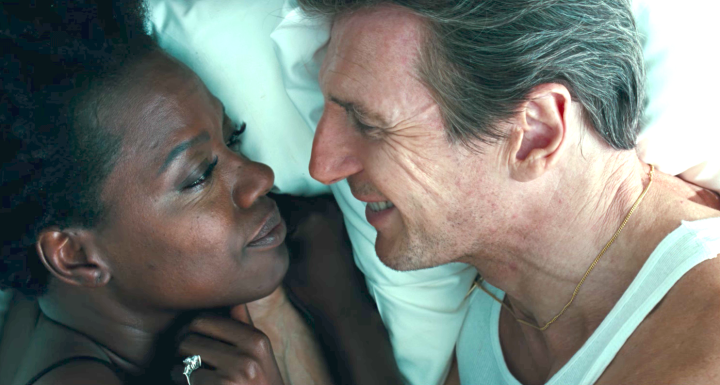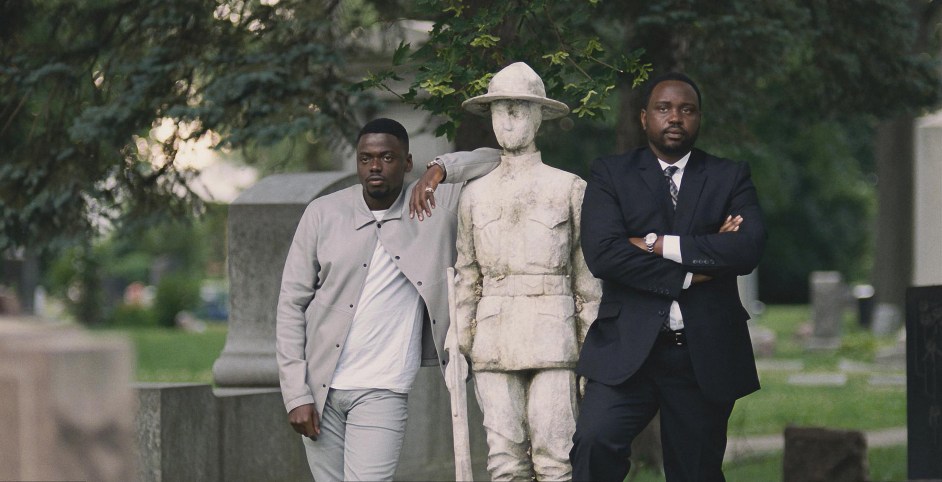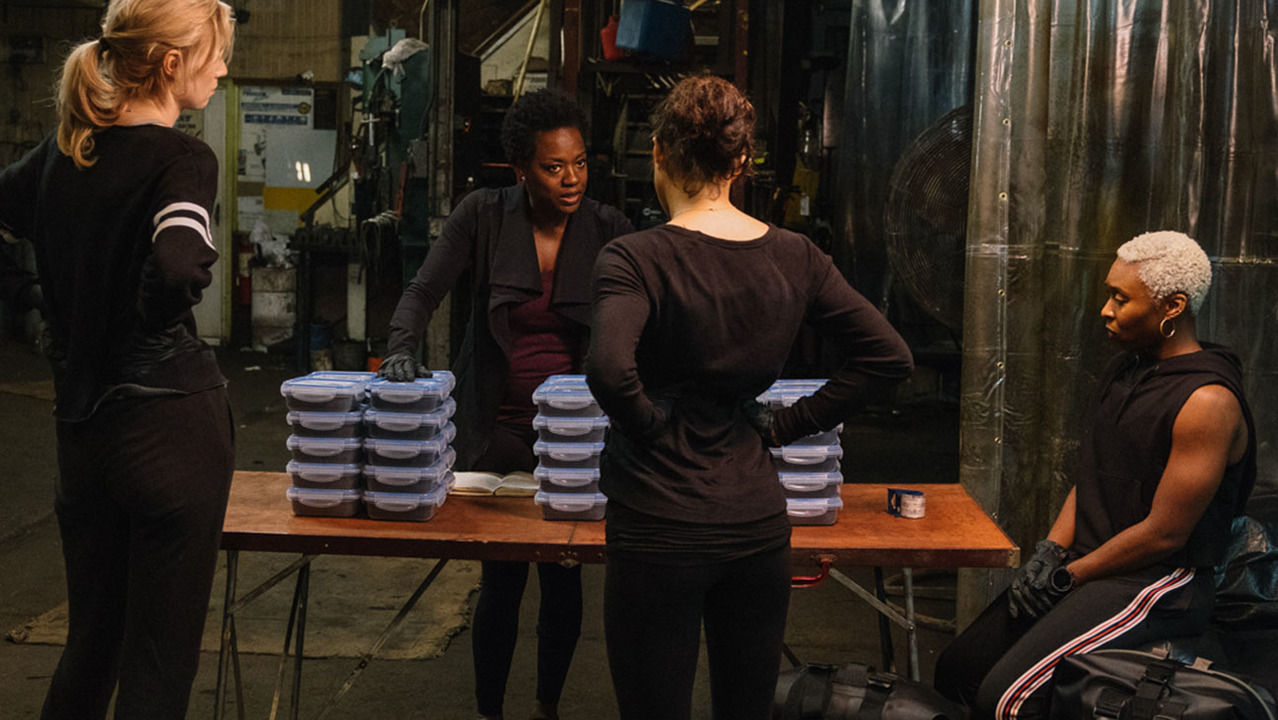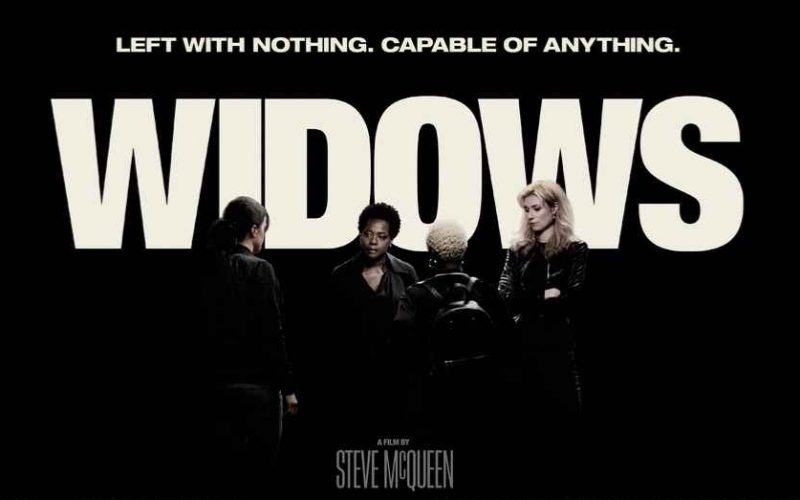Widows (2018).
Steve McQueen’s latest picture plays like a response to the oft-criticised (and maybe sometimes not criticised enough) treatment of women in film as motives for change or trauma in the male lead’s life. As such, Widows takes place in the immediate aftermath of a heist gone wrong. Instantly subverting the expectations of a thriller, it spends a great deal of time working through the personal fallout for the wives of the dead criminals. It may perhaps lean too heavily into that on occasion.
Viola Davis steals every scene she’s in as Veronica, the wife of a man (Liam Neeson) who lived a lucrative life of crime and headed up the botched heist that opens the film. Veronica finds that her late husband’s professional misdemeanors have come back to haunt her and she’s forced to take action in order to pay off a debt owed to a corrupt politician running for the office of mayor. Bryan Tyree Henry plays Jamal Manning, who is Jack Mulligan’s (Colin Farrell) greatest threat in his attempt to keep the seat of power that his father held before him in office.

Aside from the political plot, Veronica seeks out the remaining widows of the men involved in the aforementioned heist; Alice (Elizabeth Debicki), a victim of abuse not only from her late husband (Jon Bernthal) who learns empowerment through grief; Linda (Michelle Rodriguez), a now single parent blamed by her mother-in-law for the death of her husband; Cynthia Erivo plays Belle, a young woman just trying to support her daughter and finds herself with the opportunity to make some real money.
With the plans her husband had drawn up for his next heist in her possession, Veronica only sees one choice. She gathers together the widows and prepares to complete the mission that would clear all of their debts and offer them all an opportunity to start over. Manning and his gangs have a criminal history, though clearly a quite inconspicuous one, Daniel Kaluuya plays the sinister and creepily quiet Jatemme Manning, whose methods of extracting information are discomforting to say the least.

There’s a lot going on here. Veronica’s commitment to pulling off the heist (their advantage – no one thinks they “have the balls to pull it off”) is wedged in the middle of the back and forth between the Manning and Mulligan parties. We’re thrust into the lives of each leading woman, given perspective on Mulligan’s behind-the-scenes method of dealing with his work and the stress it places on him (not aided by his ruthless father, played by Robert Duvall), and we’re frequently given further background on Veronica and her husband’s previous traumas. A commonality within McQueen and novelist Gillian Flynn’s (Gone Girl) tight if overstuffed screenplay is its societal relevance, moments that strengthen its themes instead of designing them. McQueen keeps the focus on the story at hand, a vital asset to offering a powerful drama that just happens to be led by the kinds of characters that rarely get this kind of treatment.
It’s certainly a little overstuffed but still manages to remain mostly easy to follow, but it’s unavoidably noticeable how deep the list of characters runs. By the time Belle is introduced as a hairdresser in a saloon funded by Mulligan’s initiative for empowering women (a funding that, however, results in great financial strain for the business owner when she now owes her own debt), the film probably should have finished its setup. Minor characters are easily forgotten by the time they show up again, so their exits from the story can feel less defining than the way in which they are removed. Additionally, some of the film’s major beats could have benefited from more setup. At 128 minutes long, this is that rare movie that may have benefited from an elongated run-time.

Still, McQueen has crafted something meticulous in its use of tension and its effort in giving voice to characters whose lives did not allow for much of it before they fell apart. A mix of strong and weak characters who ultimately find that their strengths can be stronger and their weaknesses can become strengths guides the film firmly into its dramatic prowess, elevating it on its drama and performances alone. It’s a pulsating triumph despite its imperfections. For some, there might just be too many ideas stirred into this taut crime drama. And yet it closes on a smile and, as I did, you might just find yourself smiling too.
Film ’89 Verdict – 8/10
Widows is on general release now.

